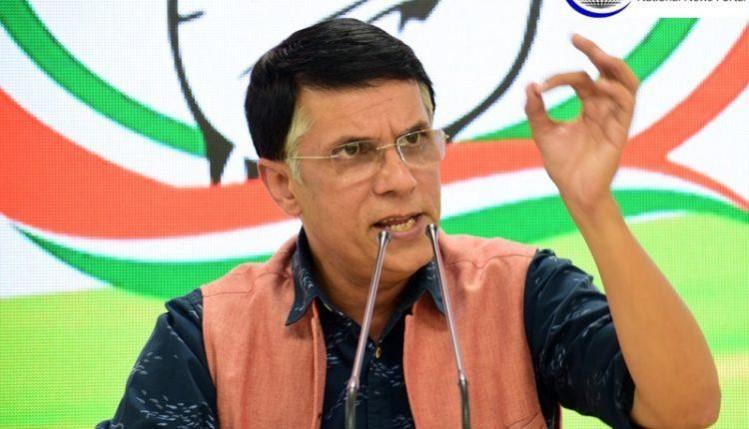The Congress on Wednesday alleged that the government is supporting large corporate houses and giving them benefits at the cost of public exchequer.
Addressing a press conference, Congress spokesperson Pawan Khera said, "Prime Minister Modi and his government continue to support and aid their crony capitalist friends who in turn back all the PR acts of the PM and flood the coffers of the BJP."

Khera alleged that quid-pro-quo relation has now been unearthed. It involves an insolvent company, Prime Minister's favourite 'business baba' and of course, the public sector banks of India.
Ruchi Soya debts
In support of his allegation, he cited the example of Ruchi Soya and said that in 2017, a private firm by the name of Ruchi Soya had filed for insolvency, which was then approved by the NCLT in September of the same year.
The company had taken loans that amounted to Rs 12,146 crore and the banks started making claims for the said loans. Several banks were exposed to these claims -- State Bank of India, Punjab National Bank, DNB being the prominent ones.
The largest lender to Ruchi Soya was SBI that had given loans amounting to Rs 1,816 crore. When time came for settling of these loans, SBI could only settle Rs 883 crore worth of claims, hence foregoing Rs 993 crore.
It was not just SBI, but most lenders of Ruchi Soya managed to settle only a fraction of the total loans. The banks could only settle 43.6 per cent of the total loans given to Ruchi Soya.
SBI loan to Patanjali
The Congress spokesperson alleged that "what is significant to note here is that not only did SBI write off hundreds of crores from the accounts of Ruchi Soya Industries, it went one step further and loaned money amounting to Rs 1,200 crore to Patanjali to fund the purchase of Ruchi Soya Industries."
Khera alleged, "The Prime minister and the government cannot continue to support these capitalists and businessmen 'Babas' at the expense of the exchequer and the common man. This is a nation built by the common people, not by businessmen 'babas'."
"Ruchi Soya had debts amounting to over Rs 12,000 crore, and yet it was bought for a mere Rs 4,000 crore. Today, it is valued Rs 36,360 crore. Why did public sector banks bear the brunt of it," Khera asked.
The pace at which the shares shot up, the actions of the government pertaining to Palmolein oil, the decision of a PSB like the SBI to further lend Patanjali in its acquisition of Ruchi Soya, whose loans had to be written off, demand for an investigation into the issue, Khera said.















